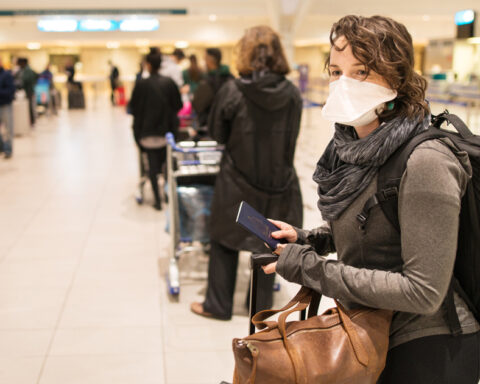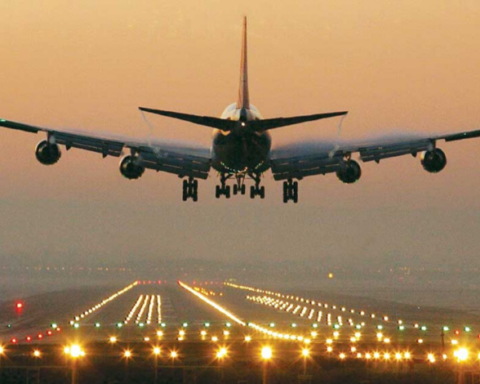A pilot project conducted in Bulgaria has shown that more people get tested for HIV when self-testing is available. In situations where testing is based in health-care institutions, it can be a challenge to encourage some people to come forward.

Teodor Paunov poses for a portrait at his home in a suburb of Sofia, Bulgaria, on 20 November 2020. After seeing an advertisement from Single Step Foundation about HIV self-testing, Teodor ordered a test to check his HIV status. © WHO / Blink Media — Nikolay Doychinov
“The worries in my community I think come from that many of them are still hidden, not just from their families but also from themselves,” said Teodor Paunov. “And also, the idea that it might happen to someone else, but it will never happen to me, so why would I get tested, I am fine.”
Community-based testing is a good way to overcome those barriers, but it can be labour intensive. Self-testing can be less expensive, and the pilot project clearly shows the role it can play. The findings are especially relevant to health authorities working hard to maintain essential services during the COVID-19 pandemic.
Testing for HIV is a critical public health intervention because it is the first step towards treatment and care. With current antiretroviral treatment, people who test positive can expect to live a healthy life with HIV without passing it on to anyone else.
The population groups in Bulgaria who are most vulnerable to HIV infection include gay, bisexual and other men who have sex with men (MSM) and transgender people. Despite progress in recent years, many MSM and transgender people in Bulgaria are not aware of their HIV status and are reluctant to seek testing at health institutions due to fear of potential stigma.
A simple saliva test with results in 20 minutes
The pilot project was conducted by local nongovernmental organization Single Step Foundation. Momchil Baev, Sexual Health and HIV Manager for the organization, said, “We offered MSM and trans people the opportunity to test for HIV completely for free, confidentially, in the comfort of their home, without having to visit a health centre or meet anyone. We used an approved oral test method, which detects antibodies to the HIV virus in saliva. It is easy, convenient and reliable. A swab is rubbed along the gums, then immersed into a reaction solution, and the result is available after 20 minutes.”

Momchil Baev, Sexual Health & HIV Program Manager for Single Step Foundation, works in his apartment in Sofia, Bulgaria, on 20 November 2020. © WHO / Blink Media — Nikolay Doychinov
Over the course of the campaign, the NGO sent out 900 free HIV self-testing kits to 120 locations, in all 28 districts of the country. The campaign was promoted on social media under #endHIVbg and benefited from Single Step Foundation’s partnership with Grindr, one of the world’s largest social networking apps for gay, bisexual, transgender and queer people.
Single Step placed full-screen notifications that would appear when users opened the Grindr app, as well as direct inbox messages within the app to all Grindr users in the country. Users were then prompted to order an HIV home test online by clicking through to the Single Step website, where they could fill out a questionnaire and order a test kit. Tests were delivered by post free of charge.
“Providing support during the COVID- 19 protracted crises is giving hope to many people in need of a healthier and safer future,” said Dr Skender Syla, WHO Representative in Bulgaria. “The WHO team in Bulgaria is impressed with the dedication, hard work and positive energy of all engaged in HIV self-testing initiative.”
While working as a performer this summer in Sunny Beach, Bulgaria, the ad for home testing caught Paunov’s attention, so he ordered one. Paunov typically gets tested twice a year but this year, due to COVID-19, he said there was nowhere to get tested.
“I am a proponent for sexual health generally, especially amongst my queer friends and acquaintances,” Paunov said. “I think it’s right for us to get tested and to be healthy and responsible to ourselves and our partners respectively.”
Concerns about how support would be provided to someone who tested positive were answered by setting up a dedicated support phone line, staffed by a sexual health and HIV manager. Twelve positive results were reported to the phone line in the initial pilot campaign and another 15 and counting in its second round in 2020. Callers were referred to a follow-up test at a medical testing centre to confirm the result. All the people affected received treatment and now have an undetectable viral load.

Dr Skender Syla (left), WHO Representative in Bulgaria, and Dr Michail Okoliyski, WHO Public Health Expert converse with each other in the WHO office in Sofia, Bulgaria, on 20 November 2020. WHO and partners supported Single Step Foundation in launching HIV self-testing across the country. © WHO / Blink Media — Nikolay Doychinov
“For some of the guys with a positive result, it was rather difficult to cope with the sad news,” explained Baev.
Many of the men were from rural areas with very limited access to quality information, community services or medical care. Single Step provided support and guidance until they were able to access treatment and start dealing with the diagnosis.
“In such a hard moment it’s important for a person to understand that the HIV diagnosis is in no way a death sentence,” Baev said. “Secondly, it’s not a punishment for their way of life and HIV can happen to absolutely anyone.”
Valuable behavioural insights
Questionnaires before and after testing have provided valuable insights into the service and how it has been received. 1574 MSM and trans people from 164 towns and villages responded and many did not know their HIV status.
The project revealed an important difference between the capital and provincial areas — 68% of MSM and transgender individuals living in smaller cities were not aware of their HIV status, suggesting that HIV testing options are not as accessible outside the capital. HIV self-testing can bridge that gap. The pilot project also showed that 68% of those unaware of their status never or rarely use a condom, one third of all respondents (31%) had never been tested for HIV, and 71% prefer home HIV testing over traditional methods.

Teodor Paunov walks through a field in a suburb of Sofia, Bulgaria, on 20 November 2020. © WHO / Blink Media — Nikolay Doychinov
“This pilot project has shown that there is strong demand in the community for HIV self-testing in Bulgaria,” said Dr Masoud Dara, Coordinator for Communicable Diseases at the WHO Regional Office for Europe. “It also shows how self-testing can help expand testing services to reduce inequalities between rural and urban areas.”
Since 2016, WHO has recommended that HIV self-testing be offered as an additional approach to traditional HIV testing services. However, not all countries in the WHO European Region have taken full advantage of the possibility.
The Bulgarian Ministry of Health is currently developing a new national HIV prevention and control program for the period of 2021–2025. Baev and WHO Public Health Expert Dr Michail Okoliyski say it is critical that self-testing services combined with PrEP, PEP, and free STI testing are included.
“The timely inauguration of the new National HIV Programme would be a very important factor for the successful implementation of all preventive and treatment activities which will help end the AIDS epidemic, ” Dr Okoliyski said.





